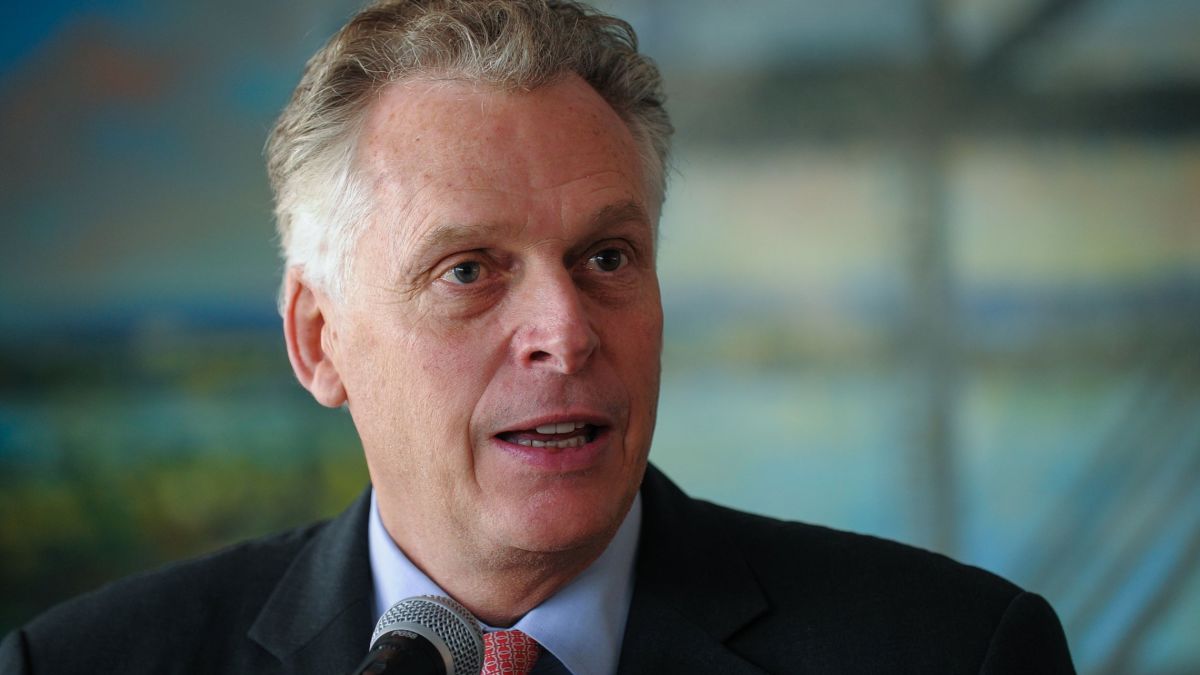
Terry McAuliffe
Dear Commons Community,
Former Governor Terry McAuliffe, won the Democratic primary in Virginia yesterday, and will face Republican Glenn Youngkin in November. This will be the second chance McAuliffe will have to lead the state. McAuliffe’s victory is seen by some Democratic leaders as the best chance of maintaining the party’s control in Richmond and a disappointment to progressives and some Black Virginians eager for new blood. Youngkin, a former private equity executive, is a Trump loyalist. As reported by various news media.
“McAuliffe’s victory was fueled by name recognition and the other candidates never consolidating,” said Ben Tribbett, a Democratic political consultant in northern Virginia.
McAuliffe defeated four fellow Democrats to win the nomination: state Sen. Jennifer McClellan, former Del. Jennifer Carroll Foy, Lt. Gov. Justin Fairfax and state Del. Lee Carter.
With the chance to lead the state alongside a Democratic legislature, McAuliffe ran on boosting teacher pay, enabling universal access to early childhood education, speeding up implementation of the $15 minimum wage, adopting universal broadband internet coverage, and closing racial economic disparities.
Toward the end of his lopsided primary, McAuliffe began previewing his message against Youngkin, a business-friendly Republican from the upscale northern Virginia suburbs who has nonetheless secured the endorsement of former President Donald Trump.
“Let me be clear: Glenn Youngkin is not a reasonable Republican,” McAuliffe said in the final televised debate of the Democratic primary. “He is an extreme, right-wing Republican. He is a loyalist to Donald Trump.”
Unlike Trump, Youngkin acknowledges that President Joe Biden won the election, though he has rolled out an “election integrity” plan designed to appeal to the Republican base’s evidence-free fears of voter fraud.
Pivoting to the general election, Youngkin is emphasizing proposals to reduce the state’s regulations and taxes, which are middle-of-the-road by national standards.
“We’re going to open up free enterprise,” Youngkin said in a CNBC interview in May. “We’re going to, in fact, invest in creating a business climate in Virginia where companies want to be here.”
McAuliffe, a businessman, Clinton family acolyte and fundraiser-turned-Democratic National Committee chairman, governed Virginia from 2014 to January 2018. He enjoyed solid approval ratings as governor, winning praise from liberals for restoring the voting rights of 173,000 former felons and vetoing legislation that would have curbed women’s reproductive rights.
Much of McAuliffe’s proactive liberal policy agenda, however, failed due to Republican control of the state legislature.
With a Democratic legislature, he can double what he did before. Virginia state Senate President Louise Lucas (D)
The chance to govern with the support of a Democratic legislature ― Democratic control of the state House is likely and assured in the state Senate ― was a key part of McAuliffe’s case for running.
“Terry has demonstrated what he can do,” state Senate President Louise Lucas (D), a McAuliffe campaign co-chair, told HuffPost. “With a Democratic legislature, he can double what he did before.”
Since the Virginia state Constitution bars governors from serving consecutive terms, this race was McAuliffe’s first chance at a second stint in office. If successful against Youngkin in November, McAuliffe will be the first Virginia governor to serve non-consecutive terms since Mills Godwin. Godwin ran the state as a Democrat from 1966 to 1970, and then as a Republican from 1974 to 1978.
We wish McAuliffe well. He was a good governor in 2014-2018 and should be good again for Virginia in 2022.
Tony


